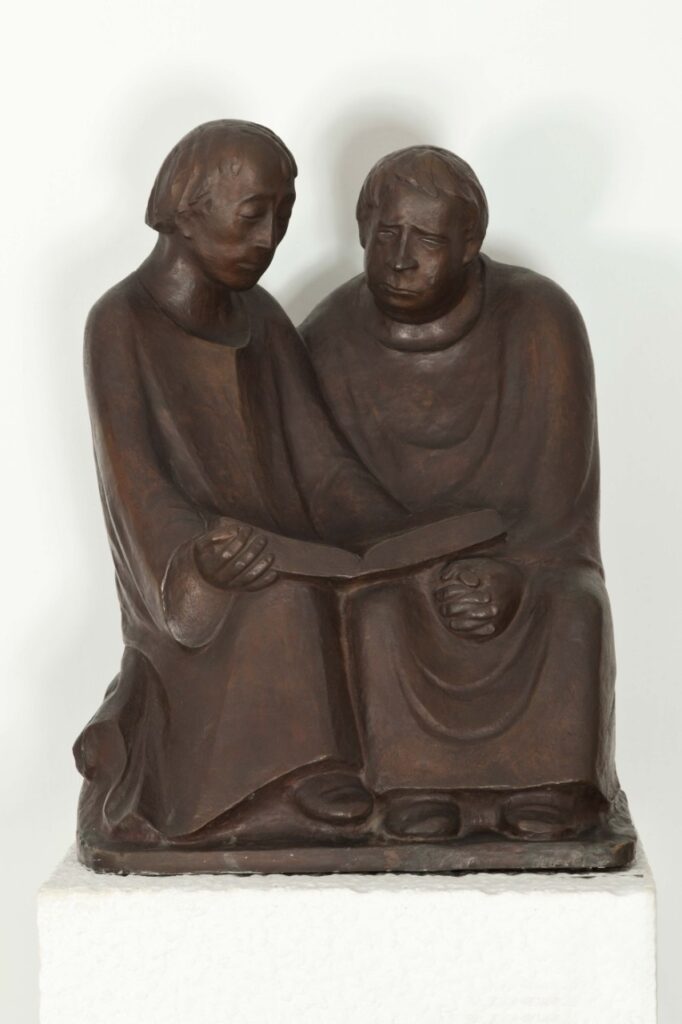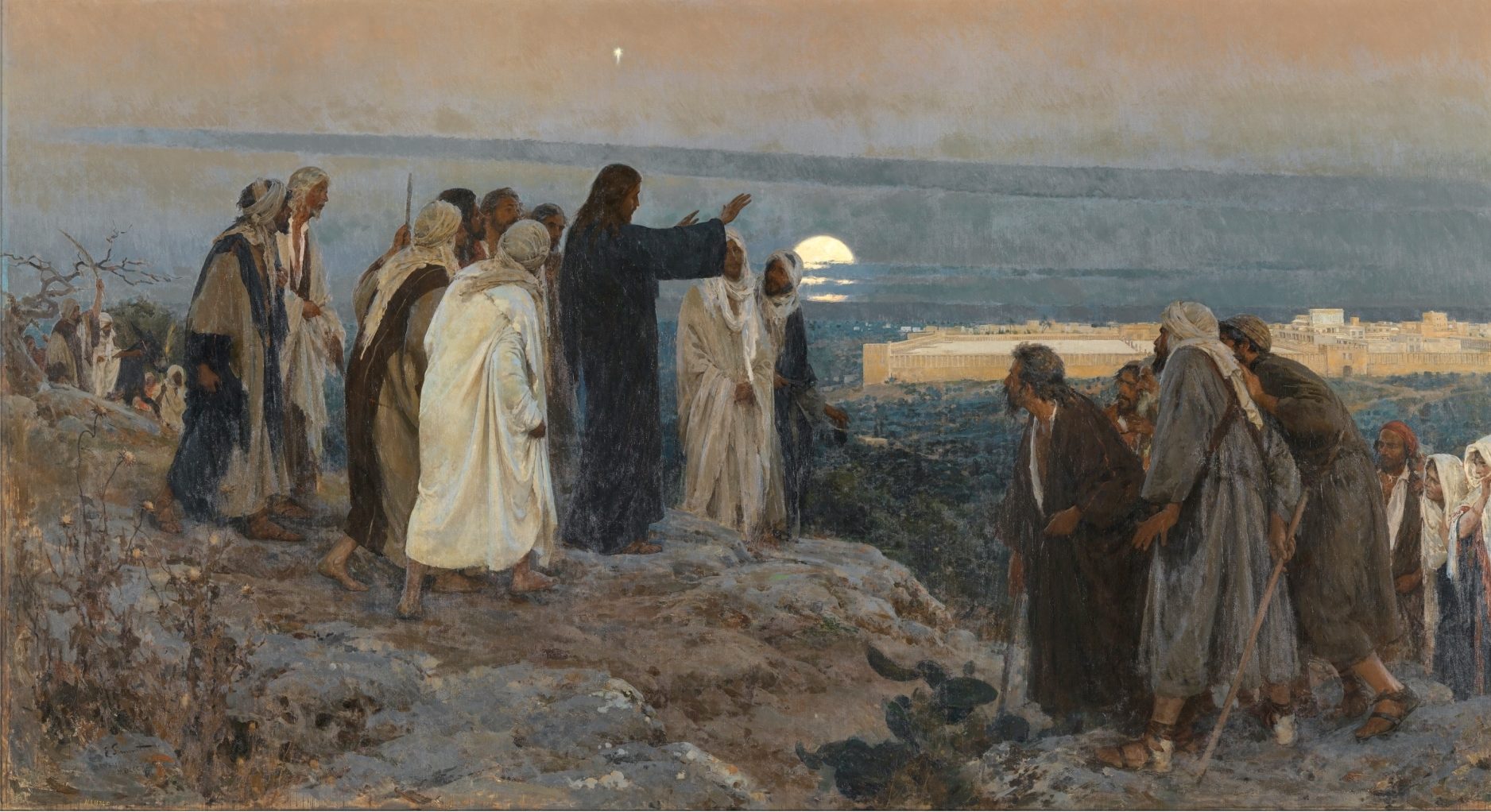The daily reading of Scripture is one of my devotional habits, especially during the preparatory seasons like Advent and Lent. A devotional life certainly encompasses more than a daily lectionary— recently Dale Meyer and David Schmitt discussed a vast and beautiful array of practices and works of service that grow out from God’s word and the Spirit’s gifts. Nonetheless, I thought I’d offer up a recommendation with some simple reflections on my favorite daily lectionary as one devotional possibility among many for this Lententide.
I have always loved the daily lectionary from old TLH, the 1941 The Lutheran Hymnal. It appears to me to be one of the more thoughtful arrangements, more attuned to the liturgical seasons and biblical theology than the various other daily lectionaries I have used. The readings for Lent are a brilliant example of this (you can find it online at hymnary.org/hymn/LH1941/page/162).

Two readings, one from the Old Testament and one from the New are prescribed for each day. At the start, the Old Testament reading focuses on the narratives in the book of Numbers—Israel’s 40 years of wandering and temptation. The readings from the New Testament begin with Luke 9 and the so-called “travel narrative,” i.e. when Jesus “set his face to go to Jerusalem.” Thus these daily readings invite us to regard our Lenten preparation as a pilgrimage of sorts. We being our 40 days by walking along with ancient Israel in her 40 years of wandering. We are are instructed by their failures (1 Cor. 10:6), and buoyed by God’s remarkable provisions for his “stiff-necked people” (a nickname that can still ring true of God’s people, and not just because we haven’t splurged on memory-foam pillows …). And for 40-days we walk alongside Jesus as he makes his way to Jerusalem, determined and focused on his own “exodus” (Lk 9:31) by which he will lead us all from death to life.
By Lent 4, we reach the account of Jesus’ death and burial, but in our Old Testament reading (Deut. 9) we hear from Moses echoes of the true meaning of the cross, that a mighty work has just occurred and the enemies of Gods’ people have been overcome: “Hear, O Israel: you are to cross over the Jordan today, to go in to dispossess nations greater and mightier than you, cities great and fortified up to heaven, a people great and tall, the sons of the Anakim, whom you know, and of whom you have heard it said, ‘Who can stand before the sons of Anak?’ [Nb.remember the Anakim are also the Nephillim—the diabolical Fallen Ones!] Know therefore today that he who goes over before you as a consuming fire is the LORD your God. He will destroy them and subdue them before you. … Not because of your righteousness or the uprightness of your heart are you going in to possess their land, but because of the wickedness of these nations the LORD your God is driving them out from before you.”
Then the Evangelist Matthew takes us into his account of Jesus final path to the cross, (Mt 26:1f.): “When Jesus had finished all these sayings, he said to his disciples, “You know that after two days the Passover is coming, and the Son of Man will be delivered up to be crucified.” By the week’s end, we have heard St. Matthew’s Passion and we begin St. Mark’s account. Moses also dies and is buried (Deut 34), but not before God shows him the bright country of the promised land.
Lent 5 brings us the voices of the prophets—Jeremiah, Hosea, Zephaniah, Micah, Isaiah, and Zechariah—with reproaches against Israel’s sin and the sins of the nations. By their words, we are all placed in the dock, but our defense remains speechless. God is righteous and we are without excuse. But near the end, hope emerges. On the eve of Palm Sunday, Zechariah promises the coming of the king, meek and lowly, riding on a donkey.
On the final week, the Holy Week, the Evangelist John is our guide bringing us closer to the side of Jesus than all the others. The prophets’ shift their voice and now the words of the innocent Christ speaks through them: “I gave my back to those who strike, and my cheeks to those who pull out the beard; I hid not my face from disgrace and spitting.”…”I was like a gentle lamb, led to the slaughter.” … “I will remove the iniquity of this land in a single day.” On Friday, we mourn with Lamentations. Finally at the week’s end, we contemplate, with hope beyond hope, that the Lord’s suffering servant, “marred beyond human semblance,” … “shall be exalted” (Isa 52:13-15).
That’s just an overview. There are many more surprises along the way, only to be seen if you take the journey yourself. Be that as it may, I pray that whatever your discipline, whatever your preparations, that God’s word would enrich your Lenten pilgrimage with the hope and vision of that bright country at our journey’s end.


Leave a Reply
You must be logged in to post a comment.